Spring 2024 Features:
No One Expects Anything, So You Can Do Everything: An Interview with Chelsea Stickle
by Qwayonna Josephs, Bethany Randazzo, & BriAnna Sankey
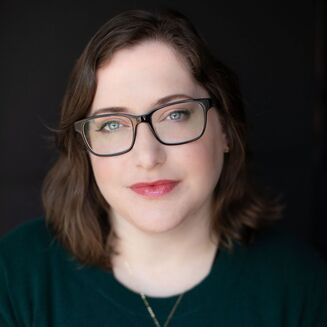
Chelsea Stickle believes in the power of anonymity. It gives her creative freedom because “no one expects anything, so [she] can do everything.” This philosophy guided Stickle through writing her most recent chapbook, Everything’s Changing.
Stickle lives a quiet life in Annapolis, MD with her black rabbit, George, and a forest of houseplants. A flash editor at Funicular Magazine, Assistant Fiction Editor for Pithead Chapel, and Associate Fiction Editor for Pidgeonholes, she is also inspired by her passion for short fiction to co-run the Shorter is Better book club. Her chapbook Everything’s Changing uses surreal elements to highlight the strikingly real struggles of women and girls through thought-provoking, humor-laced stories that address serious systemic issues.
In this interview, Chelsea Stickle takes us behind the scenes and details the creative process of this book, including her inspiration, intent, and what’s next.
Stickle lives a quiet life in Annapolis, MD with her black rabbit, George, and a forest of houseplants. A flash editor at Funicular Magazine, Assistant Fiction Editor for Pithead Chapel, and Associate Fiction Editor for Pidgeonholes, she is also inspired by her passion for short fiction to co-run the Shorter is Better book club. Her chapbook Everything’s Changing uses surreal elements to highlight the strikingly real struggles of women and girls through thought-provoking, humor-laced stories that address serious systemic issues.
In this interview, Chelsea Stickle takes us behind the scenes and details the creative process of this book, including her inspiration, intent, and what’s next.
Nurturing Peace in a Hostile World: A Conversation with Artress Bethany White
by Gianna Forgen, Courtney R. Hall, & Kelli Hughes
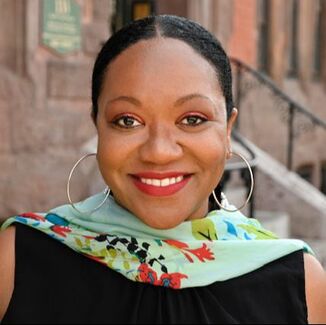
In the age of surging book bans and sanitized school curricula, diverse narratives which challenge a universal experience are needed now more than ever. Artress Bethany White knows the value of shared stories and how they can open people’s eyes to new perspectives they may not have encountered elsewhere. As a poet, essayist, educator, and mother, White draws from her experiences and the shared trauma of marginalized people in her 2022 Next Generation Finalist Indie Book Award winning essay collection Survivor’s Guilt: Essays on Race and American Identity.
In this interview with Glassworks, White touches on many aspects of the hostile world we live in, and how she uses her writing and work as both an educator and a mother to foster peace wherever and whenever she can.
In this interview with Glassworks, White touches on many aspects of the hostile world we live in, and how she uses her writing and work as both an educator and a mother to foster peace wherever and whenever she can.
INTERVIEW ARCHIVE
Finding Humor in Anything I Please: An Interview with James Carpenter
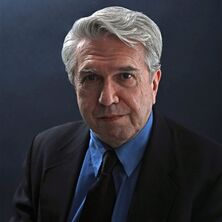
by Courtney R. Hall, Daniel Hewitt, Cat Reed, & Javis Sisco
It’s not common to meet someone who brings magic to everything they touch, but James Carpenter seems to bring that special something wherever he goes. After an electric career in education, business, and information technology, including a position as an affiliated faculty member at The Wharton School, James has channeled that magic touch into writing. Larry Bensky described his first novel, No Place to Pray, as “the creative nexus where Faulkner, Cormac McCarthy, and Richard Pryor converge.” His second novel, Nineteen To Go, finds a way to blend the topic of vasectomies with humor using the 1950s as the backdrop, a feat that many others would not be able to accomplish. In addition to writing novels, he consistently writes short-fiction, with some appearing in the Chicago Tribune's Printers Row, Fiction International, and North Dakota Quarterly. Three of his stories were nominated for the Pushcart Prize and he is a recipient of Descant's Frank O'Connor Prize.
In this interview with Glassworks, James Carpenter brings his candid humor and vulnerability to the table, all the while showing that he does have a serious bone or two in his body.
It’s not common to meet someone who brings magic to everything they touch, but James Carpenter seems to bring that special something wherever he goes. After an electric career in education, business, and information technology, including a position as an affiliated faculty member at The Wharton School, James has channeled that magic touch into writing. Larry Bensky described his first novel, No Place to Pray, as “the creative nexus where Faulkner, Cormac McCarthy, and Richard Pryor converge.” His second novel, Nineteen To Go, finds a way to blend the topic of vasectomies with humor using the 1950s as the backdrop, a feat that many others would not be able to accomplish. In addition to writing novels, he consistently writes short-fiction, with some appearing in the Chicago Tribune's Printers Row, Fiction International, and North Dakota Quarterly. Three of his stories were nominated for the Pushcart Prize and he is a recipient of Descant's Frank O'Connor Prize.
In this interview with Glassworks, James Carpenter brings his candid humor and vulnerability to the table, all the while showing that he does have a serious bone or two in his body.
Right and WronG: An Interview with Eugene Cross

by Phil Cole
In his debut short story collection, Fires of Our Choosing, Eugene Cross shows us what humanity exists in the American Northwest. None of his characters are spoon-fed to us. Through Eugene’s masterful storytelling, we’re forced to leave behind our understandings of good guys and bad guys as we watch every-day people do wrong. Eugene Cross was kind enough to answer questions and help a reader dig deeper into the mind of himself and his characters.
In his debut short story collection, Fires of Our Choosing, Eugene Cross shows us what humanity exists in the American Northwest. None of his characters are spoon-fed to us. Through Eugene’s masterful storytelling, we’re forced to leave behind our understandings of good guys and bad guys as we watch every-day people do wrong. Eugene Cross was kind enough to answer questions and help a reader dig deeper into the mind of himself and his characters.
Pain! Agony! and Unicorn Meat! An Interview with Josh Denslow
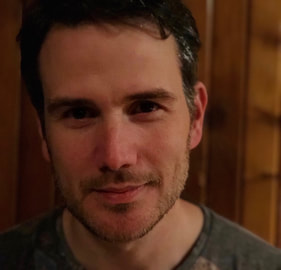
by Taylor Blum, Chris Comparri, Megan Kiger, & Erin Theresa Walsh
In Josh Denslow’s short story collection, Not Everyone Is Special, readers are introduced to a world that appears familiar, yet is bursting with comedic and fantastical elements which paint the human experience in a new and unique hue. For instance, if you’ve ever wanted to punch someone in the face completely free of consequences, Denslow creates that fantasy for you, (among many others). He forms a “pretty tight bond” with every character he writes, giving them the necessary tools to ultimately unveil his own imagination through the story. Each plot contains thrilling yet relatable situations, which range from mystical and bizarre to emotional and heartbreaking.
By creating vibrant characters that are shockingly true to life, Denslow is able to naturally and perfectly “by accident” weave humor and magic into his fiction, allowing him to address a multitude of relatable and devastating experiences in a way which has never been done before.
In Josh Denslow’s short story collection, Not Everyone Is Special, readers are introduced to a world that appears familiar, yet is bursting with comedic and fantastical elements which paint the human experience in a new and unique hue. For instance, if you’ve ever wanted to punch someone in the face completely free of consequences, Denslow creates that fantasy for you, (among many others). He forms a “pretty tight bond” with every character he writes, giving them the necessary tools to ultimately unveil his own imagination through the story. Each plot contains thrilling yet relatable situations, which range from mystical and bizarre to emotional and heartbreaking.
By creating vibrant characters that are shockingly true to life, Denslow is able to naturally and perfectly “by accident” weave humor and magic into his fiction, allowing him to address a multitude of relatable and devastating experiences in a way which has never been done before.
The Aftermath of Tragedy: An Interview witH Katherine Flannery Dering

by Dylann Cohn-Emery, Julie Darpino, Kaitlyn Gaffney, & Leo Kirschner
Making sense and finding purpose after experiencing great tragedy in life is something with which many people struggle. It is not unusual for authors to take pen to paper when exploring pain and grief in such times. But for author Katherine Flannery Dering, family heartbreak provided the opportunity to examine not only the negative, but also the positive of life. Previously, Dering turned the plight of her brother’s schizophrenia and subsequent death into an emotional journey of self-discovery and staunch advocacy for mental illness in her memoir, Shot in the Head: a Sister’s Memoir, a Brother’s Struggle. Now the former teacher, full-time mother, and retired businesswoman explores another family tragedy—the untimely death of her nephew—to reconcile her feelings in her new collection of poetry titled Aftermath (Finishing Line Press). Dering comments that when we are suddenly forced to face reality’s hardships, “we can crumple, or we can learn from it, and grow in wisdom.”
Making sense and finding purpose after experiencing great tragedy in life is something with which many people struggle. It is not unusual for authors to take pen to paper when exploring pain and grief in such times. But for author Katherine Flannery Dering, family heartbreak provided the opportunity to examine not only the negative, but also the positive of life. Previously, Dering turned the plight of her brother’s schizophrenia and subsequent death into an emotional journey of self-discovery and staunch advocacy for mental illness in her memoir, Shot in the Head: a Sister’s Memoir, a Brother’s Struggle. Now the former teacher, full-time mother, and retired businesswoman explores another family tragedy—the untimely death of her nephew—to reconcile her feelings in her new collection of poetry titled Aftermath (Finishing Line Press). Dering comments that when we are suddenly forced to face reality’s hardships, “we can crumple, or we can learn from it, and grow in wisdom.”
Happily Ever After: an Interview with Christopher DeWan
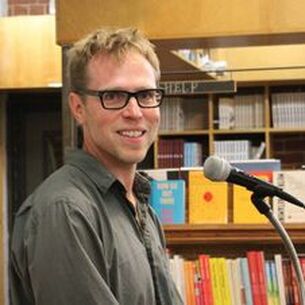
by Jordan Moslowski, Emily Strauser, & Eric Avedissian
Once upon a time, fairy tales delivered heroes into their happily ever afters, but what happens when “happily ever after” ends and reality sets in? In his latest book, self described storyteller Christopher DeWan presents the fairy tale genre in a new light. Hoopty Time Machines: fairy tales for grown ups is a collection of short stories that explore what happens “after happily ever after,” incorporating some of the darkness that comes from the original fairy tales. By flipping the roles around—turning the scariest of monsters into heroes, and breaking our favorite heroes from their cookie-cutter molds—he brings fairy tales back to reality, where things are not always so black and white.
Once upon a time, fairy tales delivered heroes into their happily ever afters, but what happens when “happily ever after” ends and reality sets in? In his latest book, self described storyteller Christopher DeWan presents the fairy tale genre in a new light. Hoopty Time Machines: fairy tales for grown ups is a collection of short stories that explore what happens “after happily ever after,” incorporating some of the darkness that comes from the original fairy tales. By flipping the roles around—turning the scariest of monsters into heroes, and breaking our favorite heroes from their cookie-cutter molds—he brings fairy tales back to reality, where things are not always so black and white.
Moving Pictures: An Interview with Eric Dyer

by Jane Blaus, Jason Egner, & Karen Holloway
Upon first glance, you may realize that there is something inherently different about Eric Dyer’s animations. It’s not quite clay animation, yet not quite digital animation, either. So what is it? Rarely does an artist present a new medium quite like Dyer. His work aims to explore the animation styles developed before the invention of film. Using a zoetrope, a cylindrical device of rotating static images, Dyer brings his sculptures and images to life. Upon exploring his installations and videos, you will come across a word you can’t Google: cinetrope. Eric’s unique way of blending antiquated technology with 3D printing and handmade 2D paper cut-outs spawned a new film medium; a sculpture/machine he calls the "cinetrope."
In this interview, Dyer discusses his drive to work with old cinematic technology, as a way to “reclaim 'trash' and to memorialize a disappearing medium.” He also explains the active role of the viewer in his animations, sheds light on the music composition side of his work, and reveals how he pushed through waves of uncertainty and setbacks to bring us something truly innovative.
Upon first glance, you may realize that there is something inherently different about Eric Dyer’s animations. It’s not quite clay animation, yet not quite digital animation, either. So what is it? Rarely does an artist present a new medium quite like Dyer. His work aims to explore the animation styles developed before the invention of film. Using a zoetrope, a cylindrical device of rotating static images, Dyer brings his sculptures and images to life. Upon exploring his installations and videos, you will come across a word you can’t Google: cinetrope. Eric’s unique way of blending antiquated technology with 3D printing and handmade 2D paper cut-outs spawned a new film medium; a sculpture/machine he calls the "cinetrope."
In this interview, Dyer discusses his drive to work with old cinematic technology, as a way to “reclaim 'trash' and to memorialize a disappearing medium.” He also explains the active role of the viewer in his animations, sheds light on the music composition side of his work, and reveals how he pushed through waves of uncertainty and setbacks to bring us something truly innovative.
Paradoxes of Identity: An Interview with Julie Enszer
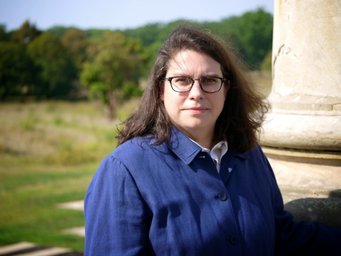
by Rachel Carly, Sarah Knapp, Myriah Stubee, & Alexis Zimmerman
Now more than ever identities are being called into question, trivialized, and often dismissed. People are searching for validation and acceptance from society, peers, and even themselves. This affirmation often comes in the form of words.
Addressing these concerns in her poetry, Julie R. Enszer explores the “relationship between how we label ourselves and how others label us…[and explores] that dynamic tension.” Enszer provides voices for identities that are often marginalized. Representing communities such as women, LGBTQ, and Jewish Culture. Tapping into social movements, mythology, and the complexity of identity, Enszer works to discover truths.
Now more than ever identities are being called into question, trivialized, and often dismissed. People are searching for validation and acceptance from society, peers, and even themselves. This affirmation often comes in the form of words.
Addressing these concerns in her poetry, Julie R. Enszer explores the “relationship between how we label ourselves and how others label us…[and explores] that dynamic tension.” Enszer provides voices for identities that are often marginalized. Representing communities such as women, LGBTQ, and Jewish Culture. Tapping into social movements, mythology, and the complexity of identity, Enszer works to discover truths.
The Book That Almost Wasn't: an Interview with Mitchell Fink
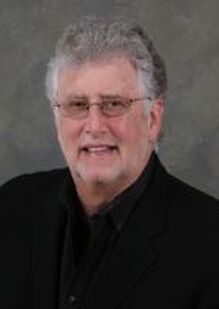
by Patricia Dove & Elaine Paliatsas-Haughey
People believe that time will heal the racial divides in America; however, it is only when people change the way they think and look at the world that racism will eventually be stopped. It has to start with a change of heart.
In his most recent publication, Change of Heart, honored journalist Mitchell Fink tells the story of Robert Dunn. Dunn grew up in an all-white neighborhood in Queens during the 60's and resented white people for the way they treated him. In the spring of 1998 Dunn received a heart transplant, but at the time he didn't know that the heart would be from Dorothy Moore, a white woman, and that it would forever change his view on race. Fink and Dunn teamed up to write this book; however, just as their agent began shopping it to publishers, Dunn had a heart attack and passed away. Eventually, Fink decided to move forward with his effort and finish this book for Dorothy Moore and Robert Dunn.
People believe that time will heal the racial divides in America; however, it is only when people change the way they think and look at the world that racism will eventually be stopped. It has to start with a change of heart.
In his most recent publication, Change of Heart, honored journalist Mitchell Fink tells the story of Robert Dunn. Dunn grew up in an all-white neighborhood in Queens during the 60's and resented white people for the way they treated him. In the spring of 1998 Dunn received a heart transplant, but at the time he didn't know that the heart would be from Dorothy Moore, a white woman, and that it would forever change his view on race. Fink and Dunn teamed up to write this book; however, just as their agent began shopping it to publishers, Dunn had a heart attack and passed away. Eventually, Fink decided to move forward with his effort and finish this book for Dorothy Moore and Robert Dunn.
PERSPECTIVE ON BEING AN ARTIST IN 2020: AN INTERVIEW WITH JACK FLO
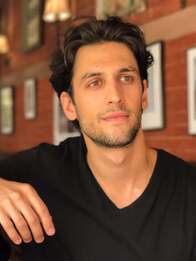
by Juliana Holshue, Thomas LaPorte, & Dom Marconi
According to Jack Flo, “art is history, it tells time,” and during this unprecedented year of 2020, Jack has used his art to express and record his experiences.
As an artist, he believes he has the obligation to do so; Jack is not only an artist, but an activist too. As an ally of the Black Lives Matter movement, he has used his platform to amplify Black voices during our nation’s current civil unrest because he believes “to create art and ignore the current state of the world would be a great injustice.” In this interview, Jack further explores how his inspirations and roles as an artist and activist feed his creativity and drive his passion.
According to Jack Flo, “art is history, it tells time,” and during this unprecedented year of 2020, Jack has used his art to express and record his experiences.
As an artist, he believes he has the obligation to do so; Jack is not only an artist, but an activist too. As an ally of the Black Lives Matter movement, he has used his platform to amplify Black voices during our nation’s current civil unrest because he believes “to create art and ignore the current state of the world would be a great injustice.” In this interview, Jack further explores how his inspirations and roles as an artist and activist feed his creativity and drive his passion.
Your New American Best Friend: An Interview with Olivia Gatwood

by Juliana Crescenzo, Ashley Haden, & Mikaela Langdon
In the digital age, artists are able to interact with their audiences more closely than ever before. This is especially true for poet Olivia Gatwood whose spoken word videos regularly obtain over 100,000 views. Gatwood’s charm and transparency make her seem like the girl next door, so it’s no surprise she titled her first poetry book New American Best Friend.
In addition to writing and performing poetry, Gatwood also runs writing workshops at schools across the country as a Title IX Compliant educator in sexual assault prevention and recovery. Her passion for feminism and social justice heavily influence her work. A self-described believer in “girl power,” Olivia Gatwood doesn’t shy away from the awkward, the burdensome, or even the offensive. New American Best Friend is an honest reflection of her past experiences, and it leaves readers feeling like they found a friend.
In the digital age, artists are able to interact with their audiences more closely than ever before. This is especially true for poet Olivia Gatwood whose spoken word videos regularly obtain over 100,000 views. Gatwood’s charm and transparency make her seem like the girl next door, so it’s no surprise she titled her first poetry book New American Best Friend.
In addition to writing and performing poetry, Gatwood also runs writing workshops at schools across the country as a Title IX Compliant educator in sexual assault prevention and recovery. Her passion for feminism and social justice heavily influence her work. A self-described believer in “girl power,” Olivia Gatwood doesn’t shy away from the awkward, the burdensome, or even the offensive. New American Best Friend is an honest reflection of her past experiences, and it leaves readers feeling like they found a friend.
The Status Quo is the Enemy: An Interview with David Gerrold

by Joseph Berenato & Katlyn Slough
Science fiction writer David Gerrold created the fictional philosopher Solomon Short in the hostile world of the series The War Against the Chtorr, which, according to Gerrold, is “an extremely hostile universe. Nothing gets resolved. So it takes a lot more courage and commitment to be heroic.” But Solomon did survive and became a great man and philosopher, an inspiration to others and iconic both in his series and outside of it with sayings like, “You can lead a horse’s ass to water, but he’s still a horse’s ass.”
Gerrold, in a career that spans close to fifty years, has achieved great success in our hostile world: as an outspoken member of the LGBT community, he inspires other writers to fight for what they believe in. No matter the backlash, Gerrold stops at nothing to express his opinions, taking others to task both directly and indirectly through the adventures of famous characters. His writing alone often challenges the majority opinion, raising questions both from larger issues about gay rights, respect for others, and equality for everyone, and from small battles like overcoming poor self-image and what it means to create a family. He is the Solomon Short of real life—someone to help us through whatever oppositions stand in the way because he knows he can.
Science fiction writer David Gerrold created the fictional philosopher Solomon Short in the hostile world of the series The War Against the Chtorr, which, according to Gerrold, is “an extremely hostile universe. Nothing gets resolved. So it takes a lot more courage and commitment to be heroic.” But Solomon did survive and became a great man and philosopher, an inspiration to others and iconic both in his series and outside of it with sayings like, “You can lead a horse’s ass to water, but he’s still a horse’s ass.”
Gerrold, in a career that spans close to fifty years, has achieved great success in our hostile world: as an outspoken member of the LGBT community, he inspires other writers to fight for what they believe in. No matter the backlash, Gerrold stops at nothing to express his opinions, taking others to task both directly and indirectly through the adventures of famous characters. His writing alone often challenges the majority opinion, raising questions both from larger issues about gay rights, respect for others, and equality for everyone, and from small battles like overcoming poor self-image and what it means to create a family. He is the Solomon Short of real life—someone to help us through whatever oppositions stand in the way because he knows he can.
Truth in War: an Interview with Cynthia Graham
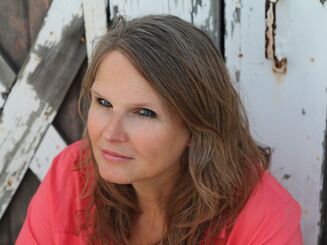
by Michael Fotos & Michael Comoroto
A reader’s initial reaction to Cynthia A. Graham’s novel Beneath Still Waters may be to categorize the piece a murder mystery as readers successfully locate the tropes that fit the genre. Along the way, however, we uncover a greater distinction, one of meaning and purpose. Graham explores the American military and its practices to bring forth conversations about the ethical responsibilities of having lives in our hands. Her findings set forth an army of questions to her reader’s who will inevitably battle with the ugly truths of being human.
A reader’s initial reaction to Cynthia A. Graham’s novel Beneath Still Waters may be to categorize the piece a murder mystery as readers successfully locate the tropes that fit the genre. Along the way, however, we uncover a greater distinction, one of meaning and purpose. Graham explores the American military and its practices to bring forth conversations about the ethical responsibilities of having lives in our hands. Her findings set forth an army of questions to her reader’s who will inevitably battle with the ugly truths of being human.
Facing the Identity Cliff: An Interview with CM Harris

by Scott MacLean, Georgia I. Salvaryn, and Marissa Stanko
Familial resistance and societal expectations can make coming to terms with one's identity an arduous journey with only two possible conclusions: leaping off the cliff of acceptance or staying far enough from the edge to avoid conflict. CM Harris explores these themes fearlessly in her most recent novel, Maiden Leap (Bedazzled Ink Publishing). She attended The School of Art Institute of Chicago and The Loft Literary Center of Minneapolis. She currently lives in Minneapolis with her wife and their twins.
In this interview with Glassworks, Harris’s candid musings reveal how her life experiences and struggles with her identity as an LGBTQ person and author have influenced her characters and their journeys throughout the tumultuous narrative of Maiden Leap.
Familial resistance and societal expectations can make coming to terms with one's identity an arduous journey with only two possible conclusions: leaping off the cliff of acceptance or staying far enough from the edge to avoid conflict. CM Harris explores these themes fearlessly in her most recent novel, Maiden Leap (Bedazzled Ink Publishing). She attended The School of Art Institute of Chicago and The Loft Literary Center of Minneapolis. She currently lives in Minneapolis with her wife and their twins.
In this interview with Glassworks, Harris’s candid musings reveal how her life experiences and struggles with her identity as an LGBTQ person and author have influenced her characters and their journeys throughout the tumultuous narrative of Maiden Leap.
So Sing On: An Interview with Ernest Hilbert
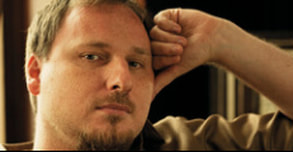
by Stephanie Kohler & Brian Maloney
For Ernest Hilbert, the sonnet is the most basic unit of human expression - it captures a moment in one “little song.” The couplet is the equivalent to a punchline, the form serves solitary contemplation, and the genre is intentionally blurred. Yet Hilbert views his modern take on the old tradition just as he views his predecessors and their craft. Art will always be art, he says, the “ancient things that still work.”
His latest anthology All of You on the Good Earth is no exception to his rule, and, as an antique book dealer, it is his expectation. In “Cover to Cover," Hilbert explores his affair with books. “I don’t collect them,” he writes, an obvious and ironic fallacy. Like stories, “they just accumulate,” as time passes and as he experiences more of the world. An avid traveler, Hilbert is most interested in the variations among individuals, even if the pervasive voice in his poems is at most times alone. Though no name is mentioned, he speaks for everyone, to everyone, with the sonnet as his steadfast device.
For Ernest Hilbert, the sonnet is the most basic unit of human expression - it captures a moment in one “little song.” The couplet is the equivalent to a punchline, the form serves solitary contemplation, and the genre is intentionally blurred. Yet Hilbert views his modern take on the old tradition just as he views his predecessors and their craft. Art will always be art, he says, the “ancient things that still work.”
His latest anthology All of You on the Good Earth is no exception to his rule, and, as an antique book dealer, it is his expectation. In “Cover to Cover," Hilbert explores his affair with books. “I don’t collect them,” he writes, an obvious and ironic fallacy. Like stories, “they just accumulate,” as time passes and as he experiences more of the world. An avid traveler, Hilbert is most interested in the variations among individuals, even if the pervasive voice in his poems is at most times alone. Though no name is mentioned, he speaks for everyone, to everyone, with the sonnet as his steadfast device.
Challenging Conventions: An Interview with Meghan Lamb
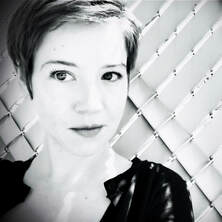
by Garret Castle, John Castle, & Ariana Tucker
Every once in a while, you come across an author whose work makes you stop in your tracks and question everything you know about writing. These writers challenge your perception of what a book can be and open your mind to styles of storytelling you didn’t even know existed. Meghan Lamb is one of these authors. Not only does her work span multiple genres, but it also challenges the conventions of those very genres in the process. You can observe this in her latest novel, Failure to Thrive, where she manages to weave together elements of things that are real and imagined. In this interview with Glassworks, Lamb gives insight into her process while writing Failure to Thrive and shares her perspective on the relationship between language and plot.
Every once in a while, you come across an author whose work makes you stop in your tracks and question everything you know about writing. These writers challenge your perception of what a book can be and open your mind to styles of storytelling you didn’t even know existed. Meghan Lamb is one of these authors. Not only does her work span multiple genres, but it also challenges the conventions of those very genres in the process. You can observe this in her latest novel, Failure to Thrive, where she manages to weave together elements of things that are real and imagined. In this interview with Glassworks, Lamb gives insight into her process while writing Failure to Thrive and shares her perspective on the relationship between language and plot.
Ritmo e Poesia: An Interview With Dra. Raina J. Leon
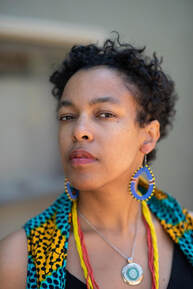
by Rebecca Green, Iliana Pineda, Nyds Rivera, & Paige Stressman
Identity is a theme central to contemporary poetry, especially in recent years. Dra. Raina J. León, a local Philly poet, has explored many aspects of her life over her nearly two decades of writing poetry. From her religious upbringing in Canticle of Idols to her reflections on motherhood in her most recent collection, black god mother this body, León has built her career on the art of self-exploration. Proudly Afro-Boricua, León’s poetry encapsulates the rhythms of her culture and combines them with the soul of Philadelphia.
In this interview, León talks about her cultural and familial influences, her work as a founding editor for The Acentos Review, her forthcoming release of an audio poetry collection, and, of course, the importance of music, rhythm, and la cultura in her poetry.
Identity is a theme central to contemporary poetry, especially in recent years. Dra. Raina J. León, a local Philly poet, has explored many aspects of her life over her nearly two decades of writing poetry. From her religious upbringing in Canticle of Idols to her reflections on motherhood in her most recent collection, black god mother this body, León has built her career on the art of self-exploration. Proudly Afro-Boricua, León’s poetry encapsulates the rhythms of her culture and combines them with the soul of Philadelphia.
In this interview, León talks about her cultural and familial influences, her work as a founding editor for The Acentos Review, her forthcoming release of an audio poetry collection, and, of course, the importance of music, rhythm, and la cultura in her poetry.
Defying Boundaries Through the Lens of Constraint:
An Interview With Paul Lisicky
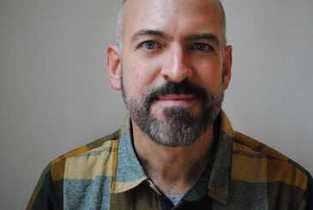
by Nicolina Givin, Amanda Rennie, & Jacqueline Session-Ausby
“Making—whether it’s designing cities or composing music or writing— is a way toward freedom, individuality, expressiveness, connecting to others. A way to feel less alone.”
Engulfing us in his tug of war of emotions and bringing to life the burning and rebuilding of his relationships, award winning writer, Rutgers University creative writing professor, and South Jersey native Paul Lisicky explores “making” as he talks to Glassworks magazine.
In a candid and self-aware interview focused on his most recent memoir, The Narrow Door, Lisicky discusses his thoughts on successful relationships, how creative nonfiction has evolved as a genre, his writing process, and how it has transposed over his work in various genres.
“Making—whether it’s designing cities or composing music or writing— is a way toward freedom, individuality, expressiveness, connecting to others. A way to feel less alone.”
Engulfing us in his tug of war of emotions and bringing to life the burning and rebuilding of his relationships, award winning writer, Rutgers University creative writing professor, and South Jersey native Paul Lisicky explores “making” as he talks to Glassworks magazine.
In a candid and self-aware interview focused on his most recent memoir, The Narrow Door, Lisicky discusses his thoughts on successful relationships, how creative nonfiction has evolved as a genre, his writing process, and how it has transposed over his work in various genres.
The Right Stuff - Redefined: An Interview with Jan Millsapps
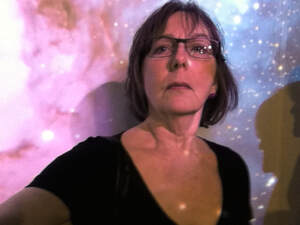
by John Gross, Rachel Saltzman, & Christina Thomas
“I grew up with the space age: the Soviet Sputniks launched just as I started elementary school and the first Apollo moon landing happened just as I finished high school, but these were times when girls were not encouraged to study science, math and technology. Instead I was routed into the arts and humanities, where I've certainly been content and productive, but I've always had that unfulfilled hunger to know more about space science and space exploration. Studying cosmology and other space sciences has not only answered this need, but has also provided me the foundation I needed to think and write more effectively about all things beyond my Earth-bound experiences.”
Jan Millsapps’ crossing of multimedia boundaries has left an impact on film, digital media, and writing. Professor Emeritus of Cinema at San Francisco State University, her creative work exemplifies her passion for the space sciences and her advocacy for women’s advancement in STEM careers and space exploration. We were happy to be able to talk with Millsapps about her contributions to both digital and print media, her fascination with Mars, and her efforts to ensure gender equality in space exploration.
“I grew up with the space age: the Soviet Sputniks launched just as I started elementary school and the first Apollo moon landing happened just as I finished high school, but these were times when girls were not encouraged to study science, math and technology. Instead I was routed into the arts and humanities, where I've certainly been content and productive, but I've always had that unfulfilled hunger to know more about space science and space exploration. Studying cosmology and other space sciences has not only answered this need, but has also provided me the foundation I needed to think and write more effectively about all things beyond my Earth-bound experiences.”
Jan Millsapps’ crossing of multimedia boundaries has left an impact on film, digital media, and writing. Professor Emeritus of Cinema at San Francisco State University, her creative work exemplifies her passion for the space sciences and her advocacy for women’s advancement in STEM careers and space exploration. We were happy to be able to talk with Millsapps about her contributions to both digital and print media, her fascination with Mars, and her efforts to ensure gender equality in space exploration.
Shaking the Dust: an Interview with Anis Mojgani
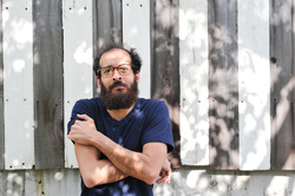
by G. Mitchell Layton and Gabrielle Lund
“I strive to offer myself up to my audience in a manner that allows them to come inside whatever room I am offering to them, I want to invite folks in and make them comfortable.” So says spoken word artist, Anis Mojgani, who is a two-time national slam poetry champion and has released four poetry collections with Write Bloody publications. He has performed in competitions, the “Heavy and Light” tour for To Write Love on Her Arms, and even for the United Nations.
In wake of the release of his newest book, The Pocketknife Bible, he was kind enough to talk to Glassworks about the experience of revisiting his childhood, his return to the art of graphic novella, the way his performance poems transfer onto the page, and the message he hopes to leave with his audience through a variety of mediums.
“I strive to offer myself up to my audience in a manner that allows them to come inside whatever room I am offering to them, I want to invite folks in and make them comfortable.” So says spoken word artist, Anis Mojgani, who is a two-time national slam poetry champion and has released four poetry collections with Write Bloody publications. He has performed in competitions, the “Heavy and Light” tour for To Write Love on Her Arms, and even for the United Nations.
In wake of the release of his newest book, The Pocketknife Bible, he was kind enough to talk to Glassworks about the experience of revisiting his childhood, his return to the art of graphic novella, the way his performance poems transfer onto the page, and the message he hopes to leave with his audience through a variety of mediums.
In Search of a Home: An Interview with Sarah Fawn Montgomery
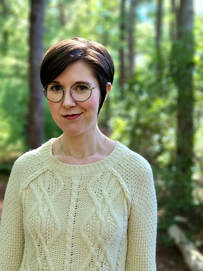
by Ellie Cameron, Caitlin Hertzberg, Frank Penick, Jr., & Amanda Smera Welsh
Essayist and poet Sarah Fawn Montgomery is the author of Halfway from Home, Quite Mad: An American Pharma Memoir and numerous other publications in multiple genres. Born in California, she currently resides in Massachusetts where she serves as an Assistant Professor at Bridgewater State University. Her latest essay collection, Halfway from Home, is a journey through time, place, and memory, exploring the complexity of home and human relationships. As she looks inward, she examines how external forces can disrupt our lives and the places we call “home.”
Essayist and poet Sarah Fawn Montgomery is the author of Halfway from Home, Quite Mad: An American Pharma Memoir and numerous other publications in multiple genres. Born in California, she currently resides in Massachusetts where she serves as an Assistant Professor at Bridgewater State University. Her latest essay collection, Halfway from Home, is a journey through time, place, and memory, exploring the complexity of home and human relationships. As she looks inward, she examines how external forces can disrupt our lives and the places we call “home.”
Identity, Appearance, and Performance: An Interview with Pedram Navab
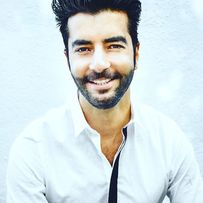
by Michael Fotos
What is Identity and how does one claim it? What are the benefits and costs of claiming identity? Navab's without anesthesia answers these questions aesthetically through its remarkable narrative. But how do we put into practical words the emotion of without anesthesia and in effect the emotion of a social world hung up on our identities? Perhaps author Pedram Navab, has the best insights as he has lived in the narrative and has invested time to its social commentary.
What is Identity and how does one claim it? What are the benefits and costs of claiming identity? Navab's without anesthesia answers these questions aesthetically through its remarkable narrative. But how do we put into practical words the emotion of without anesthesia and in effect the emotion of a social world hung up on our identities? Perhaps author Pedram Navab, has the best insights as he has lived in the narrative and has invested time to its social commentary.
Too White, But Not Colorblind: An Interview with Kelly Norris
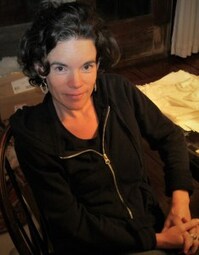
by Ann Caputo, Joe Gramigna, & Isha Strasser
America continues to struggle with racial tensions. White power groups are finding community on social media. Black girls are hyper-sexualized by the media and their peers. Immigrants are being turned away from our country in waves based on the demonization of their cultures and their skin. And yet, substantive dialogues about the tensions running under our nation are rare, leading to major rifts and clashes.
Growing up in a privileged Connecticut town, Kelly Norris felt imprisoned and misrepresented by her “whiteness.” Eager to shed her white identity, she searched for a new cultural “home.” Thus began Norris’ odyssey toward belonging. Norris’ memoir Too White dives into the challenges of racial identity and race politics in America. This often surprising, occasionally disturbing coming-of-age story explores how a young white suburban girl pushed the boundaries of identity and belonging within racialized cultures to become an educator, author, and activist. Her disarming honesty offers fresh perspectives on the need for white culture to engage with the difficult and dynamic challenge of dismantling racism in America.
In this interview with Glassworks, Kelly Norris shares her thoughts on white privilege while advising how to unpack our assumptions about race. Her thoughtful, self-confronting reflection points towards ways to disrupt systemic racism.
America continues to struggle with racial tensions. White power groups are finding community on social media. Black girls are hyper-sexualized by the media and their peers. Immigrants are being turned away from our country in waves based on the demonization of their cultures and their skin. And yet, substantive dialogues about the tensions running under our nation are rare, leading to major rifts and clashes.
Growing up in a privileged Connecticut town, Kelly Norris felt imprisoned and misrepresented by her “whiteness.” Eager to shed her white identity, she searched for a new cultural “home.” Thus began Norris’ odyssey toward belonging. Norris’ memoir Too White dives into the challenges of racial identity and race politics in America. This often surprising, occasionally disturbing coming-of-age story explores how a young white suburban girl pushed the boundaries of identity and belonging within racialized cultures to become an educator, author, and activist. Her disarming honesty offers fresh perspectives on the need for white culture to engage with the difficult and dynamic challenge of dismantling racism in America.
In this interview with Glassworks, Kelly Norris shares her thoughts on white privilege while advising how to unpack our assumptions about race. Her thoughtful, self-confronting reflection points towards ways to disrupt systemic racism.
ART, IDENTITY, AND THE BLACK AND QUEER EXPERIENCE IN AMERICA: An Interview with Porsha Olayiwola
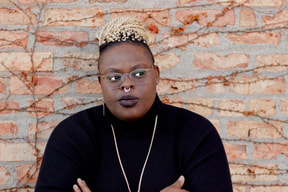
by Dina Folgia, Elizabeth Mosolovich, & Amanda Spadel
In the modern age of poetry, the idea of the classic "Great American Writer" has been wildly reimagined. Spoken-word and slam poetry have become platforms for marginalized voices to speak candidly about issues of race, religion, politics, and creed, offering a chance for revolutionary writers to expand their craft far beyond simple words on a page. Nobody knows this better than 2014 Individual World Poetry Slam Champion Porsha Olayiwola, whose debut poetry collection i shimmer sometimes, too tackles many of these tough topics, displaying them through a more personal lens.
Originally from Chicago, Olayiwola is the current poet laureate of Boston, where she now resides. Her poetry has been lauded as “a testament to black womanhood” and “rooted in afro-futurism,” making her point of view decidedly unique among modern poets. Olayiwola describes herself as black, queer, “womanist,” and a hip-hop feminist, drawing on her intertwined identities to give her poetry a rich resonance with a broad spectrum of readers.
Glassworks conducted an interview with Olayiwola to gain a better understanding of how her experience as a queer black woman in America has shaped the way she writes and performs. In i shimmer sometimes, too, Olayiwola discusses concepts pertaining to the black experience in America, adding her perspective to an ongoing conversation about inclusiveness and diversity.
In the modern age of poetry, the idea of the classic "Great American Writer" has been wildly reimagined. Spoken-word and slam poetry have become platforms for marginalized voices to speak candidly about issues of race, religion, politics, and creed, offering a chance for revolutionary writers to expand their craft far beyond simple words on a page. Nobody knows this better than 2014 Individual World Poetry Slam Champion Porsha Olayiwola, whose debut poetry collection i shimmer sometimes, too tackles many of these tough topics, displaying them through a more personal lens.
Originally from Chicago, Olayiwola is the current poet laureate of Boston, where she now resides. Her poetry has been lauded as “a testament to black womanhood” and “rooted in afro-futurism,” making her point of view decidedly unique among modern poets. Olayiwola describes herself as black, queer, “womanist,” and a hip-hop feminist, drawing on her intertwined identities to give her poetry a rich resonance with a broad spectrum of readers.
Glassworks conducted an interview with Olayiwola to gain a better understanding of how her experience as a queer black woman in America has shaped the way she writes and performs. In i shimmer sometimes, too, Olayiwola discusses concepts pertaining to the black experience in America, adding her perspective to an ongoing conversation about inclusiveness and diversity.
Storytelling Through Sci-Fi Art: An Interview with Michael Pagdon

by Andrew Bates, Kevin Coopersmith, & Amanda Kozlowski
In Michael Pagdon’s world, society is as alienated as it is populated. Giant robots enforce stripes on would-be zebras, humanoid spiders navigate large oppressive machines, and introspective, half-finished robots contemplate the changes around them. Michael Pagdon has spent over a decade in the Philadelphia arts scene, utilizing his BFA in Illustration from University of the Arts to depict science-fiction and fantasy worlds of highly expressive and emotional subjects. He cites his goal of thorough storytelling and problem-solving as motivation in his work, and his career thus far has provided works that are as aesthetically pleasing as they are haunting.
Glassworks reached out to this New Jersey native in an effort to better understand his creative process and his aspirations. First and foremost, we looked to understand the strong science fiction presence in his works, and how it influences his creative vision.
In Michael Pagdon’s world, society is as alienated as it is populated. Giant robots enforce stripes on would-be zebras, humanoid spiders navigate large oppressive machines, and introspective, half-finished robots contemplate the changes around them. Michael Pagdon has spent over a decade in the Philadelphia arts scene, utilizing his BFA in Illustration from University of the Arts to depict science-fiction and fantasy worlds of highly expressive and emotional subjects. He cites his goal of thorough storytelling and problem-solving as motivation in his work, and his career thus far has provided works that are as aesthetically pleasing as they are haunting.
Glassworks reached out to this New Jersey native in an effort to better understand his creative process and his aspirations. First and foremost, we looked to understand the strong science fiction presence in his works, and how it influences his creative vision.
Writing The Unimaginable To Life: An Interview with Aimee Parkison

by Kathryn Brining, Denia R. Martinez, & Michael Nusspickel
Winner of the Christopher Isherwood Fellowship and a Kurt Vonnegut Fiction Prize, Aimee Parkison sets out to explore the damage of our world with her fiction and poetry. Parkison’s short story collection, The Innocent Party (BOA Editions, 2012), is an intriguing look at what happens when an innocent party becomes the guilty party. Parkison’s most recent work, a short poetic novel, The Petals of Your Eyes (Starcherone Books, 2014) takes a look at the nightmare of the world of human trafficking through the eyes of one of its captives. Through tone both dream-like and visceral, Parkison pulls no punches and leaves the reader with more questions than there are answers, both about the book and the horrors of the sex trade.
Winner of the Christopher Isherwood Fellowship and a Kurt Vonnegut Fiction Prize, Aimee Parkison sets out to explore the damage of our world with her fiction and poetry. Parkison’s short story collection, The Innocent Party (BOA Editions, 2012), is an intriguing look at what happens when an innocent party becomes the guilty party. Parkison’s most recent work, a short poetic novel, The Petals of Your Eyes (Starcherone Books, 2014) takes a look at the nightmare of the world of human trafficking through the eyes of one of its captives. Through tone both dream-like and visceral, Parkison pulls no punches and leaves the reader with more questions than there are answers, both about the book and the horrors of the sex trade.
A Trip Through The Garden State: An Interview with Brad Parks
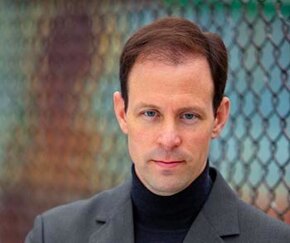
by Cherita Harrell & Caroline Marinaro
When a person thinks of New Jersey “inspirational” may not be the first thought that comes to mind. However, this is how author—and Shamus and Nero award recipient—Brad Parks describes the Garden State. Although his contributions to the crime-fiction genre are fairly recent—his first book Faces of the Gone was published in 2009—Parks is no stranger to crime writing. In fact, the first book in his Carter Ross series is loosely based on a quadruple homicide in Newark—a story he covered while working as a reporter for The Star-Ledger.
In reading a Parks novel, readers can expect a story that examines social and political issues—while still maintaining a level of humor that reflects Parks’ amiable personality. Although his stories deal with darker topics, Parks’ witty persona comes across in his writing, and his stories take readers on a journey through New Jersey—a place which Parks describes as both energetic and electric.
When a person thinks of New Jersey “inspirational” may not be the first thought that comes to mind. However, this is how author—and Shamus and Nero award recipient—Brad Parks describes the Garden State. Although his contributions to the crime-fiction genre are fairly recent—his first book Faces of the Gone was published in 2009—Parks is no stranger to crime writing. In fact, the first book in his Carter Ross series is loosely based on a quadruple homicide in Newark—a story he covered while working as a reporter for The Star-Ledger.
In reading a Parks novel, readers can expect a story that examines social and political issues—while still maintaining a level of humor that reflects Parks’ amiable personality. Although his stories deal with darker topics, Parks’ witty persona comes across in his writing, and his stories take readers on a journey through New Jersey—a place which Parks describes as both energetic and electric.
Drama & Short Attention Spans: An Interview with Chris Rakunas

by Jason Cantrell, Steve Royek, & Christina Schillaci
“Did we make a difference?” healthcare executive Chris Rakunas asked himself in early February 2010 as he was preparing to leave earthquake-ravaged Haiti. “I should have felt elated at what we had accomplished,” he thought. “Instead, I kept asking myself if any of it mattered.”
Rakunas and his colleague, Dr. Stephen Schroering, both employees of a southwest Florida hospital, had just completed a week-long relief mission to distribute 21,000 pounds of donated medical supplies across the island. As they walked along the hot, dusty tarmac, Rakunas questioned whether he, they, or anyone could affect positive change when faced with such vast devastation and suffering.
“The only thing I felt I had succeeded at was taking a single drop of water out of the ocean,” he would write less than a year later in the nonfiction bestseller that chronicles his mission, Tears for the Mountain.
“Did we make a difference?” healthcare executive Chris Rakunas asked himself in early February 2010 as he was preparing to leave earthquake-ravaged Haiti. “I should have felt elated at what we had accomplished,” he thought. “Instead, I kept asking myself if any of it mattered.”
Rakunas and his colleague, Dr. Stephen Schroering, both employees of a southwest Florida hospital, had just completed a week-long relief mission to distribute 21,000 pounds of donated medical supplies across the island. As they walked along the hot, dusty tarmac, Rakunas questioned whether he, they, or anyone could affect positive change when faced with such vast devastation and suffering.
“The only thing I felt I had succeeded at was taking a single drop of water out of the ocean,” he would write less than a year later in the nonfiction bestseller that chronicles his mission, Tears for the Mountain.
The Scrapbook You Don't Remember Making: An Interview With Artist Carlos Ramos
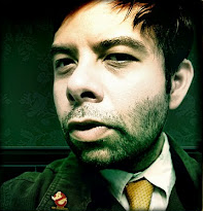
by Manda Frederick
What possibly strikes a viewer first about Carlos Ramos' work is that the images have a sense of familiarity - but not familiar like, say, a Van Gogh print that you've seen all your life on a postcard or a refrigerator magnet. When you view Ramos' paintings inspired by David Bowie and Stanley Kubrick, you don't think, “I've seen this before.” Because, of course, you have not seen Ramos' paintings before. But you think: “I somehow know this. I have experienced this.” Because Ramos' work distills the vivid, real-life personas of Bowie that we know and the narratives of Kubrick's films that we've watched, his paintings ask viewers to call up a string of concrete, sensual memories and experiences related to the content: that Greyhound bus ride to Seattle listening to “Rock 'n' Roll Suicide” from The Rise and Fall of Ziggy Stardust on repeat, waiting for the moment when the music cuts out and Bowie sings that we're not alone; that Comp II visual analysis paper your student wrote on the use of sound and color in The Shining; that summer you spent, as a child, at your uncle's house in the Michigan country-side, watching and re-watching The Labyrinth. Glancing through Ramos' work is like flipping through a scrapbook you don't remember making.
What possibly strikes a viewer first about Carlos Ramos' work is that the images have a sense of familiarity - but not familiar like, say, a Van Gogh print that you've seen all your life on a postcard or a refrigerator magnet. When you view Ramos' paintings inspired by David Bowie and Stanley Kubrick, you don't think, “I've seen this before.” Because, of course, you have not seen Ramos' paintings before. But you think: “I somehow know this. I have experienced this.” Because Ramos' work distills the vivid, real-life personas of Bowie that we know and the narratives of Kubrick's films that we've watched, his paintings ask viewers to call up a string of concrete, sensual memories and experiences related to the content: that Greyhound bus ride to Seattle listening to “Rock 'n' Roll Suicide” from The Rise and Fall of Ziggy Stardust on repeat, waiting for the moment when the music cuts out and Bowie sings that we're not alone; that Comp II visual analysis paper your student wrote on the use of sound and color in The Shining; that summer you spent, as a child, at your uncle's house in the Michigan country-side, watching and re-watching The Labyrinth. Glancing through Ramos' work is like flipping through a scrapbook you don't remember making.
The Clarity and Objectivity of Emotion: An Interview with Jill Smolowe
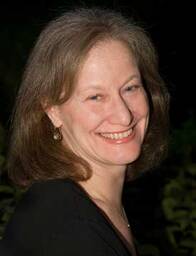
by Leslie Martinelli, Jessica O’Shea, & Kaitlin Zeilman
“One of the most valuable lessons that I learned during my decades writing for People, Time, and Newsweek is the power of a well-chosen anecdote,” says Jill Smolowe, author of An Empty Lap and Four Funerals and a Wedding, about her writing process. “It’s the classic ‘show, don’t tell’ approach to storytelling,” she says, “a style that enlivens virtually every type of writing,”
In her two memoirs, Smolowe combines the clarity and objectivity of her journalistic background, while never shying away from the emotional impact that gives such gravity to her work. In a candid interview with Glassworks Magazine, she delves into the specifics of her writing process and the drive she feels to fill the gaps in literature surrounding family and grief.
“One of the most valuable lessons that I learned during my decades writing for People, Time, and Newsweek is the power of a well-chosen anecdote,” says Jill Smolowe, author of An Empty Lap and Four Funerals and a Wedding, about her writing process. “It’s the classic ‘show, don’t tell’ approach to storytelling,” she says, “a style that enlivens virtually every type of writing,”
In her two memoirs, Smolowe combines the clarity and objectivity of her journalistic background, while never shying away from the emotional impact that gives such gravity to her work. In a candid interview with Glassworks Magazine, she delves into the specifics of her writing process and the drive she feels to fill the gaps in literature surrounding family and grief.
GENDER, RACE, & SEXUALITY THROUGH THE EYES OF CREATOR CHRISTINE SLOAN STODDARD

by Aleksandr Chebotarev, Angela Faustino, & Sam Fine
Often, when we think of creatively inclined people, we see them as one of the following: a painter, a photographer, a writer. But, we don’t often think of someone as all of these things. Christine Sloan Stoddard, an American-Salvadoran author based in Brooklyn, New York, is a great example of someone who embodies all of the occupations that come to mind when we think of a creative person.
As a woman who has seen the inequality in this world, Stoddard focuses her work on exactly this, therefore bringing justified awareness through her works of art and literature. In this interview, Stoddard discusses the depth of her characters, her multimedia elements, and the reasons why she can write and create the masterful works that she has.
Often, when we think of creatively inclined people, we see them as one of the following: a painter, a photographer, a writer. But, we don’t often think of someone as all of these things. Christine Sloan Stoddard, an American-Salvadoran author based in Brooklyn, New York, is a great example of someone who embodies all of the occupations that come to mind when we think of a creative person.
As a woman who has seen the inequality in this world, Stoddard focuses her work on exactly this, therefore bringing justified awareness through her works of art and literature. In this interview, Stoddard discusses the depth of her characters, her multimedia elements, and the reasons why she can write and create the masterful works that she has.
Embracing Self-Love and Creativity as a Storyteller: A Conversation with Danny Tayara
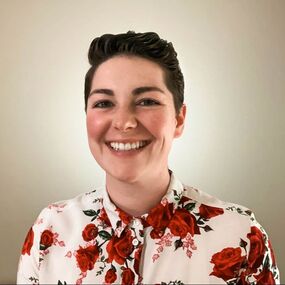
by Lesley George, Bryce Morris, & Shea Roberts
Danny Tayara (they/he/she) is a queer, mixed-race filmmaker, writer, and illustrator from Seattle, Washington. They are an active supporter of several movements: gay rights, climate action, and Black Lives Matter, to name a few. After working professionally as Festival Director for the Seattle Queer Film Festival until 2018, they received their B.A. in Film Studies from Seattle University in 2020, where they focused heavily on scientific film, data visualization, and XR (extended reality). Outside of filmmaking, they are currently a Production & UX Research Director (user experience) at VR Ulysses, a startup company in Seattle building a VR app for network security and network operations.
Tayara’s most recent publication, Clitaurus Chronicles, is a sex-education book about a “clitaurus” named Clitty who is writing a novel but can’t figure out what the climax should be. As Danny has the unique perspective of someone in both the STEM field and the world of storytellers, Glassworks was fortunate to ask them about their experiences. In this interview, Danny discusses what queerness and sexual liberation mean to them within a highly competitive industry.
Danny Tayara (they/he/she) is a queer, mixed-race filmmaker, writer, and illustrator from Seattle, Washington. They are an active supporter of several movements: gay rights, climate action, and Black Lives Matter, to name a few. After working professionally as Festival Director for the Seattle Queer Film Festival until 2018, they received their B.A. in Film Studies from Seattle University in 2020, where they focused heavily on scientific film, data visualization, and XR (extended reality). Outside of filmmaking, they are currently a Production & UX Research Director (user experience) at VR Ulysses, a startup company in Seattle building a VR app for network security and network operations.
Tayara’s most recent publication, Clitaurus Chronicles, is a sex-education book about a “clitaurus” named Clitty who is writing a novel but can’t figure out what the climax should be. As Danny has the unique perspective of someone in both the STEM field and the world of storytellers, Glassworks was fortunate to ask them about their experiences. In this interview, Danny discusses what queerness and sexual liberation mean to them within a highly competitive industry.
Stirring the Melting Pot : An Interview with Lori L. Tharps
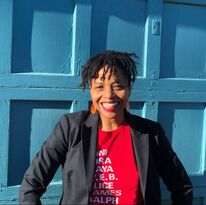
by Ed Benkin, Connor Buckmaster, & Christina Cullen
Lori L. Tharps is not a writer, or an author, or a journalist, but a self-proclaimed storyteller and diversity diva. Her voice and pen spans multiple genres, including fiction, nonfiction, and journalism, speaking with over a decade of experience in the magazine and freelancing industries and a lifetime of experience as a Black woman in America. In her day-to-day life, Tharps is a mother of three and works for Temple University as an Associate Professor for the Department of Journalism. In 2006, Tharps launched the platform My American Meltingpot as a space to share stories and ignite conversations on the “intersection of race and real life.” Since 2018, My American Meltingpot has produced weekly podcasts that explore themes of everyday life in connection to anti-racism and diversity resources. Today, Tharps is using her platform more than ever to showcase the people and stories of excellence within communities of color.
Lori L. Tharps is not a writer, or an author, or a journalist, but a self-proclaimed storyteller and diversity diva. Her voice and pen spans multiple genres, including fiction, nonfiction, and journalism, speaking with over a decade of experience in the magazine and freelancing industries and a lifetime of experience as a Black woman in America. In her day-to-day life, Tharps is a mother of three and works for Temple University as an Associate Professor for the Department of Journalism. In 2006, Tharps launched the platform My American Meltingpot as a space to share stories and ignite conversations on the “intersection of race and real life.” Since 2018, My American Meltingpot has produced weekly podcasts that explore themes of everyday life in connection to anti-racism and diversity resources. Today, Tharps is using her platform more than ever to showcase the people and stories of excellence within communities of color.
Serving Time and Stories: An Interview with Jayne M. Thompson
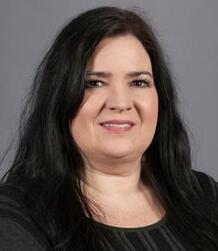
by Mickey Bratton, Connor Buckmaster, & Brianna McCray
Before reading the anthology Letters to My Younger Self: An Anthology of Writings by Incarcerated Men at S.C.I. Graterford and a Writing Workbook, one might anticipate coming to understand why these men are criminals. But Jayne Thompson, Assistant Teaching Professor of English and director of Chester Writers House, a non-profit writing center in Chester, PA, shows us so much more than their crimes. For eight years, Thompson has been volunteering to teach creative writing to men at S.C.I. Graterford, many of whom are serving life sentences. Published in June 2014 by Serving House Books, Letters to My Younger Self is a collection of writings from her first class at Graterford. In this anthology, she captures readers by uncovering the voices of these men from the confinements of their cages. The raw confessions shared in Letters to My Younger Self force readers to shift their perceptions from preconceived notions and ignorance to an empathetic common ground. Thompson’s findings, explicit and heart-warming, can bring communities together to start believing in a humanity constructed by the art of compassion, forgiveness, and the nature of love. No profits are derived from Letters to My Younger Self, and all proceeds go toward printing and distributing free copies to young people in the juvenile facilities and high schools where Thompson teaches as a volunteer.
Before reading the anthology Letters to My Younger Self: An Anthology of Writings by Incarcerated Men at S.C.I. Graterford and a Writing Workbook, one might anticipate coming to understand why these men are criminals. But Jayne Thompson, Assistant Teaching Professor of English and director of Chester Writers House, a non-profit writing center in Chester, PA, shows us so much more than their crimes. For eight years, Thompson has been volunteering to teach creative writing to men at S.C.I. Graterford, many of whom are serving life sentences. Published in June 2014 by Serving House Books, Letters to My Younger Self is a collection of writings from her first class at Graterford. In this anthology, she captures readers by uncovering the voices of these men from the confinements of their cages. The raw confessions shared in Letters to My Younger Self force readers to shift their perceptions from preconceived notions and ignorance to an empathetic common ground. Thompson’s findings, explicit and heart-warming, can bring communities together to start believing in a humanity constructed by the art of compassion, forgiveness, and the nature of love. No profits are derived from Letters to My Younger Self, and all proceeds go toward printing and distributing free copies to young people in the juvenile facilities and high schools where Thompson teaches as a volunteer.
Redefining the Straight and Narrow: An Interview with Julie Marie Wade

by Amanda Baldwin & Carly Szabo
Julie Marie Wade, author of such works as When I Was Straight and Small Fires, explores the nature of homosexuality and its social recourses through her incredibly thought-provoking and emotive works. Growing up under strict, biblical parental figures only adds fuel to Wade’s fire as she moves through each piece describing how gender stereotypes affect a child’s understanding of what it means to be a man or woman. In an interview with Glassworks, Wade was kind enough to offer insights into these issues as well as her personal experiences with them. Her responses make one thing clear: a change needs to occur in our sensitivity and language (especially towards children) in regards to what it connotes to be on the “straight and narrow.”
Julie Marie Wade, author of such works as When I Was Straight and Small Fires, explores the nature of homosexuality and its social recourses through her incredibly thought-provoking and emotive works. Growing up under strict, biblical parental figures only adds fuel to Wade’s fire as she moves through each piece describing how gender stereotypes affect a child’s understanding of what it means to be a man or woman. In an interview with Glassworks, Wade was kind enough to offer insights into these issues as well as her personal experiences with them. Her responses make one thing clear: a change needs to occur in our sensitivity and language (especially towards children) in regards to what it connotes to be on the “straight and narrow.”
A RIOT OVER INTERSECTIONAL FEMINISM: AN INTERVIEW WITH ELEANOR C. WHITNEy

by Farah Bakri, Ellen Lewis, & Amanda Smera
Activist and editor Eleanor C. Whitney, author of “Riot Woman Using Feminist Values to Destroy the Patriarchy” gives insight into her new memoir to shed light on feminism and its ever-growing community in the new media age. Born in Maine and currently Brooklyn-based, Whitney has previously published two self-help workbooks which allow readers to reflect on their lives and progress successfully. Whitney’s dedication to intersectional feminism allows readers to understand how to make real change within equality movements. In this interview, Whitney shares her advice on ways for people to educate themselves to fight for justice in regards to social equality and the way mainstream media impacts the feminism movement. She also discusses setting goals and ways she stays organized and empowered.
Activist and editor Eleanor C. Whitney, author of “Riot Woman Using Feminist Values to Destroy the Patriarchy” gives insight into her new memoir to shed light on feminism and its ever-growing community in the new media age. Born in Maine and currently Brooklyn-based, Whitney has previously published two self-help workbooks which allow readers to reflect on their lives and progress successfully. Whitney’s dedication to intersectional feminism allows readers to understand how to make real change within equality movements. In this interview, Whitney shares her advice on ways for people to educate themselves to fight for justice in regards to social equality and the way mainstream media impacts the feminism movement. She also discusses setting goals and ways she stays organized and empowered.
Writing Through Grief in 5,000 Words or Less: An Interview with Melissa Wiley

by Elyssa Finkelstein, Tyler Riggs, & Kelly Walz
Grief comes in many different forms, and so does the writing of it. Writing through grief does not necessarily crave an audience at first, but a desire to craft and reflect on past experiences in order to learn and heal. Often, writers are drawn to write about their grief in an attempt to put the pain into words. Author Melissa Wiley lost both of her parents over a short period of time, so she is well-acquainted with grief.
Lyric essays have allowed Wiley to not only explore her grieving process, but also her travels, sexuality, body comfort, and emotional release. In her own words, “for me to have a shot of functioning in this world, I have to express my own torrent of emotions in some way.” In her collection of essays, Antlers in Space and Other Common Phenomena (Split Lip Press), Wiley presents her experiences to the reader as beautiful, connected stories grappling with pain and identity. She pursues reconciliation and forces the reader, inescapably, to empathize with her.
Grief comes in many different forms, and so does the writing of it. Writing through grief does not necessarily crave an audience at first, but a desire to craft and reflect on past experiences in order to learn and heal. Often, writers are drawn to write about their grief in an attempt to put the pain into words. Author Melissa Wiley lost both of her parents over a short period of time, so she is well-acquainted with grief.
Lyric essays have allowed Wiley to not only explore her grieving process, but also her travels, sexuality, body comfort, and emotional release. In her own words, “for me to have a shot of functioning in this world, I have to express my own torrent of emotions in some way.” In her collection of essays, Antlers in Space and Other Common Phenomena (Split Lip Press), Wiley presents her experiences to the reader as beautiful, connected stories grappling with pain and identity. She pursues reconciliation and forces the reader, inescapably, to empathize with her.
Parenting, Humor, and Digital World: AN INTERVIEW WITH Yuvi Zalkow
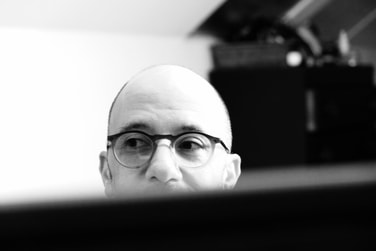
by Billy Appelbaum, Daria Husni & Emily Nolan
Yuvi Zalkow, a human with many varying projects and talents, is a writer, app developer, podcaster and YouTuber. His first novel, A Brilliant Novel in the Works, received great praise from critics, and was chosen as a Rumpus Book Club pick. In addition to writing novels, Yuvi also has a plethora of award-winning short stories, dealing with topics such as parenthood, mental health, and the hilarious mishaps that come along with general humanism. His second novel, I Only Cry With Emoticons, focuses on how disconnected we are from one another in today’s society in spite of having so many new ways to connect and communicate through social media and the evolving online space. What sets Yuvi apart is his capability to write with honest humor, a distinctive narrative voice, and tangible emotion, all in one piece! Our interview addresses the themes, characters, and processes that Yuvi underwent in creating I Only Cry With Emoticons.
Yuvi Zalkow, a human with many varying projects and talents, is a writer, app developer, podcaster and YouTuber. His first novel, A Brilliant Novel in the Works, received great praise from critics, and was chosen as a Rumpus Book Club pick. In addition to writing novels, Yuvi also has a plethora of award-winning short stories, dealing with topics such as parenthood, mental health, and the hilarious mishaps that come along with general humanism. His second novel, I Only Cry With Emoticons, focuses on how disconnected we are from one another in today’s society in spite of having so many new ways to connect and communicate through social media and the evolving online space. What sets Yuvi apart is his capability to write with honest humor, a distinctive narrative voice, and tangible emotion, all in one piece! Our interview addresses the themes, characters, and processes that Yuvi underwent in creating I Only Cry With Emoticons.
|
Glassworks is a publication of Rowan University's Master of Arts in Writing 260 Victoria Street • Glassboro, New Jersey 08028 [email protected] |
All Content on this Site (c) 2024 Glassworks
|

